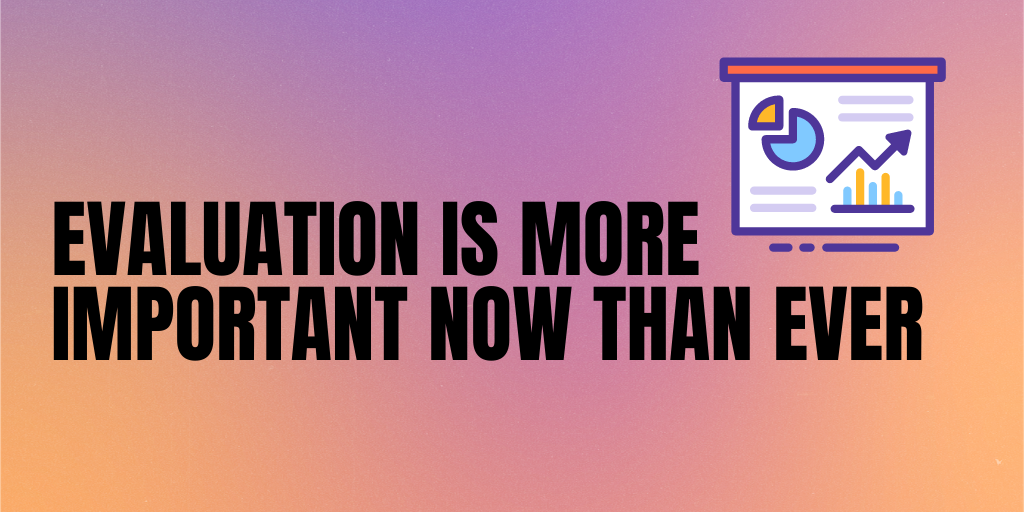
Problem
As the world continues to confront the uncertainties and challenges posed by the COVID-19 pandemic, many governmental agencies, foundations, nonprofits, and businesses have shifted their energy and resources to rapid response efforts to the urgent and unexpected needs that have arisen in recent months.
This unprecedented mobilization to help those affected by the pandemic has been heartening to witness. However, many current evaluation systems and processes don’t collect data to inform important questions about how these organizations’ work and impact is changing—these are questions that would be best answered now. This is particularly relevant as organizations shift their attention to promoting economic recovery and resiliency.
At The Improve Group, we believe evaluation is more important now than ever to ensure resources are well-used and that response efforts are having the desired effects. We’re thinking about this challenge in the following way: the problem, the opportunity, and potential solutions.
Opportunity (why evaluation is important now)
We believe organizations have an important opportunity right now to evaluate their response to the pandemic and build evaluation into their plans for recovery and rebuilding efforts. Although it can be challenging to devote the necessary attention and resources to evaluation, experts say it’s critical in times of crisis. Through evaluation, organizations can improve programming, better meet stakeholder needs, and stay nimble as times change.
Tracking data that answers evaluation-related questions that organizations have about their programs or services can also help them make decisions, inform future work, and use their resources more effectively and efficiently. Though not an exhaustive list, some important questions right now include:
- How prepared was your organization for the crisis?
- How did your current policies or practices help or hinder your response?
- How will your response inform your work moving forward?
- How did your stakeholders (e.g., service recipients, grantees, etc.) experience your response? Did it meet their needs?
- What outcomes were experienced/resulted from your response?
- What needs remain among your stakeholders/recipients/participants?
Solutions
Most organizations likely have had some experience with evaluation, either through a formal engagement with a program evaluator or by collecting data through methods like a stakeholder survey. At IG, we believe that evaluation doesn’t have to be difficult or intimidating. Here are a few tips to keep in mind as organizations consider how to incorporate evaluation into their work:
- Think about embedding evaluation into activities you’re already doing. This is a helpful practice in general, but it’s particularly important for organizations that are swamped helping people respond to and recover from this crisis. For example, organizations could use a standard program intake form to ask a question to understand a person’s needs, or they could ask during a routine interaction about how the service provided is impacting the person.
- Review the data your organization is already collecting or has—can it be used to answer new questions? You’d be surprised!
- Consider using downtime from the crisis—perhaps the services you provide have been temporarily interrupted—to assess and strengthen your current evaluation practices and systems. Like any planning or preparation work, this can lay a strong foundation for when programming resumes.
- Take a look at the wealth of resources available! This includes IG’s blog; the American Evaluation Association; and its local affiliate, the Minnesota Evaluation Association. Of course, our team is always available if you have any questions or want to share how evaluation is strengthening your work during this crisis. Feel free to reach out—we’d love to hear from you.
